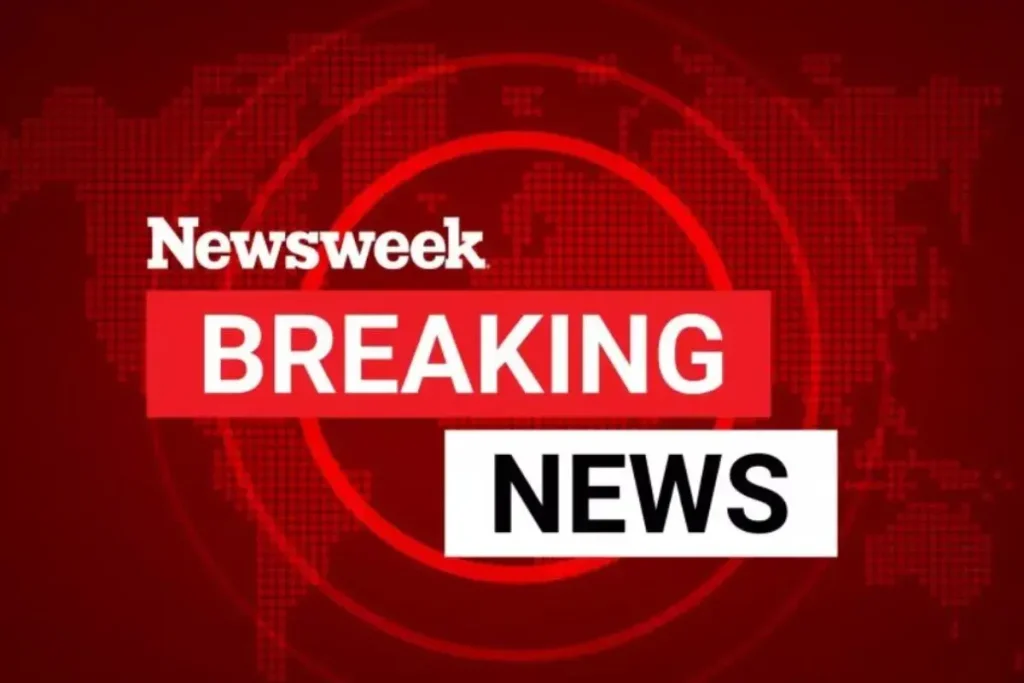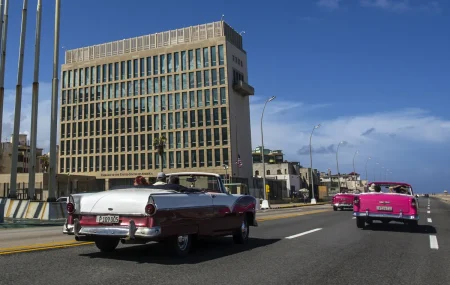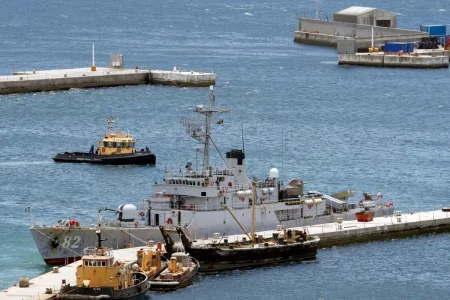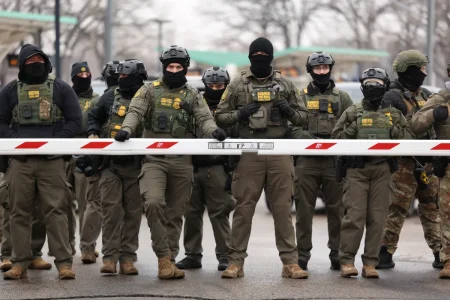Trump’s Nuclear Testing Remarks Spark Uncertainty
In a characteristically enigmatic exchange with the press on Friday, President Donald Trump left the nation guessing about the future of American nuclear weapons testing. When directly asked if his recent social media statements indicated plans to resume underground nuclear testing—a practice the United States abandoned over three decades ago—Trump offered only cryptic responses: “You’ll find out very soon” and “We’re going to do some testing.” His justification seemed to hinge on the activities of other nations, as he added, “Other countries do it. If they’re going to do it, we’re going to.” The president’s reluctance to provide concrete details has only intensified speculation about his administration’s intentions regarding nuclear policy, especially given the historical significance of such a decision.
The ambiguous statements come after social media posts in which Trump appeared to suggest the United States would resume nuclear warhead testing “on an equal basis” with Russia and China. This language has created considerable confusion among government officials, international allies, and nuclear policy experts. For context, the United States conducted its last underground nuclear test in 1992, marking the beginning of a three-decade moratorium that has been upheld by successive administrations from both political parties. Russia and China likewise haven’t conducted known nuclear tests since the 1990s, though there have been occasional allegations of low-yield testing that fell below detection thresholds.
The potential resumption of nuclear testing would represent a seismic shift in American defense policy with far-reaching international implications. Since the end of the Cold War, global norms have evolved toward reduced nuclear testing, with the Comprehensive Nuclear-Test-Ban Treaty (CTBT) signed in 1996, though never ratified by the U.S. Senate. Most nuclear powers have maintained testing moratoriums regardless of formal treaty status, creating a de facto international standard against nuclear explosions. Breaking this precedent could trigger a new arms race, complicate diplomatic relations with allies committed to nuclear non-proliferation, and potentially increase regional tensions in already unstable parts of the world.
Defense and nuclear security experts have long debated the necessity of resumed testing. Proponents argue that testing ensures the reliability of the nuclear stockpile and demonstrates American resolve, particularly as other nuclear powers modernize their arsenals. Critics counter that the United States has developed sophisticated computer simulations and non-explosive testing methods that adequately verify weapon reliability without the environmental, diplomatic, and security costs of actual detonations. The scientific community remains divided on whether these alternative methods provide sufficient confidence in an aging nuclear arsenal, though most nuclear scientists maintain that the current Stockpile Stewardship Program effectively ensures the safety and reliability of U.S. weapons.
Trump’s statements have already generated reactions from international observers and domestic political figures. Allied nations, particularly those with strong non-proliferation commitments, may view any move toward testing as undermining global security architecture. Domestically, the issue cuts across traditional political lines, with some defense hawks supporting a more assertive nuclear posture while arms control advocates warn of dangerous escalation. The president’s comments also raise questions about the role of Congress in such decisions, as funding for test preparations would require legislative approval, potentially setting up a confrontation between the executive and legislative branches over nuclear policy direction.
As this developing story unfolds, the administration’s actual intentions remain unclear. Trump’s pattern of provocative statements followed by policy moderation leaves open multiple possibilities, from serious preparations for nuclear tests to strategic ambiguity designed to pressure other nuclear powers. What is certain is that any move toward resuming nuclear testing would face significant technical, diplomatic, and political hurdles. The Nevada Test Site (now Nevada National Security Site), where previous tests were conducted, would require substantial preparation before any new detonations could occur, giving time for domestic and international response. As officials, experts, and citizens await clarification, the president’s remarks have once again highlighted the enormous responsibility and global consequences of decisions regarding the world’s most destructive weapons.















